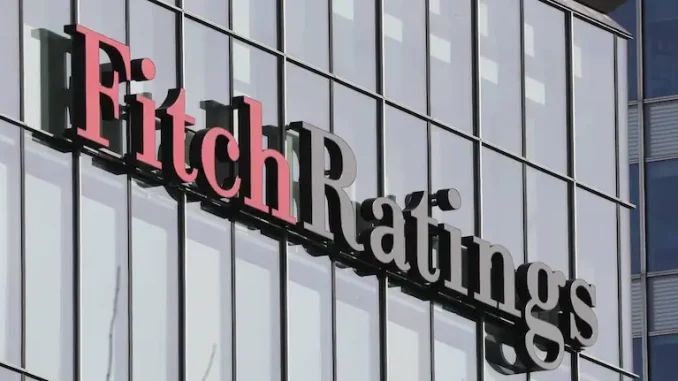
Nigerian banks are making significant progress in raising core capital to meet new paid-in capital requirements, and they are generally on track to meet the end of first quarter 2026 deadline set by Central Bank of Nigeria (CBN). Fitch Ratings, one of the global rating agencies, disclosed this in a statement posted on its website on Wednesday.
It stated that the ongoing recapitalisation would support a recovery in capitalisationfrom the impact of naira devaluation and provide fuel for business growth. It would also reduce the likelihood of significant banking sector consolidation, the agency said.
In March 2024, CBN announced a significant increase in paid-in capital requirements (share capital plus share premium) for commercial, merchant and non-interest banks.
Banks have three ways to comply – through equity injections, mergers and acquisition, and downgrading their licence authorisation.
The report said, “Fitch-rated banks have made notable progress towards compliance. Almost all have raised capital or formally launched the process to do so. The two largest banks, Access Holdings and Zenith Bank, are the first to secure enough fresh capital to meet the N500 billion requirement for an international licence.
“First HoldCo, United Bank for Africa and Guaranty Trust Holding Company are taking a phased approach. They have recently raised capital and have shareholder approval to begin raising more to meet the N500 billion requirement. First HoldCo’sand United Bank for Africa’s recent rights issues are awaiting final regulatory approval.
“Fidelity Bank and FCMB Group have completed initial capital raisings but will need to raise more to maintain their international licences. As second-tier banks, they must raise significantly more capital relative to their balance sheets than larger banks.
“They have extraordinary general meeting approval for this, although they could consider downgrading to a national licence as they each have just one foreign subsidiary.”
Fitch revealed in the statement that Ecobank Nigeria Limited and Jaiz Bank “needed only small capital injections to meet their requirements and have already achieved compliance”.
Fitch estimated that Ecobank was still in breach of its total capital adequacy ratio (CAR) requirement of 10 per cent, but it had further capital-raising plans to restore compliance.
It stated, “Stanbic IBTC Holdings has launched a rights issue to raise capital to maintain its national licence. Strong investor appetite has ensured that the vast majority of capital raisings so far have been successful, and most first- and second-tier banks should be able to meet their new capital requirements through capital raisings alone.
“Therefore, we believe the likelihood of banking sector consolidation among first- and second-tier banks has decreased.
“Union Bank of Nigeria (UBN), which is also in breach of its 10 percent CAR requirement, and third-tier banks have generally been slower to raise capital.
“Wema Bank has shareholder approval to raise enough capital to retain its national licence and plans to launch the process in April. Coronation Merchant Bank recently received board approval. It is not clear whether UBN and unrated third-tier banks have received the necessary approvals. M&A activity and licence downgrades remain more likely among third-tier banks.”
According to the report, “The capital raisings are contributing to a recovery in capitalisation from the impact of naira devaluation, which put pressure on capital ratios and increased US dollar credit concentration risks.
“Strengthened buffers over minimum CAR requirements will mitigate risks from a challenging operating environment, including regulatory intervention and further naira volatility, while providing room for business growth.
“However, they could contribute to Outlook revisions to Positive for some banks, and, providing CAR compliance is restored, to upgrades for UBN and ENG (both rated ‘CCC’). Capital raisings are more likely to affect National Long-Term Ratings, which measure the relative creditworthiness of Nigerian issuers.”


